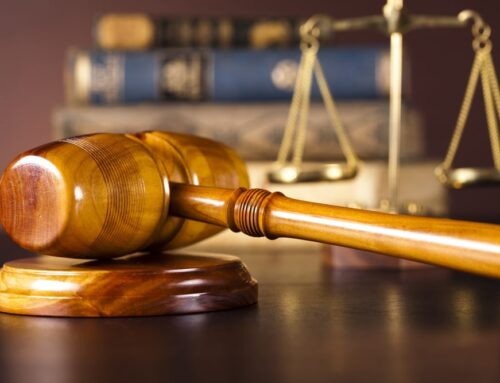Probate Lawyer
 Probate is a legal process that is often associated with complexities and misconceptions. If you’re new to probate, it can be overwhelming and become a lot of information to absorb about the different options, which is why you want a dedicated probate lawyer in your corner. If you’re still unsure when or why you may need probate, you can also consult with a knowledgeable lawyer, such as a lawyer at W.B. Moore Law. For now, we’ve compiled a few common reasons for why probate may be necessary that you should be aware of.
Probate is a legal process that is often associated with complexities and misconceptions. If you’re new to probate, it can be overwhelming and become a lot of information to absorb about the different options, which is why you want a dedicated probate lawyer in your corner. If you’re still unsure when or why you may need probate, you can also consult with a knowledgeable lawyer, such as a lawyer at W.B. Moore Law. For now, we’ve compiled a few common reasons for why probate may be necessary that you should be aware of.
Validating the Will
One of the primary reasons for initiating probate is to validate the will of the deceased individual. Probate provides an official recognition by the court that the will is legally valid. This step ensures that the deceased person’s wishes, as expressed in the will, are respected and followed during the distribution of assets. The probate process confirms the authenticity of the will, preventing potential disputes and providing peace of mind to beneficiaries.
Clearing Title to Real Estate
If the deceased person owned real estate in their sole name, probate is typically required to transfer the title to the rightful beneficiaries. Probate establishes the legal authority of the executor or personal representative to transfer ownership of the real estate. Through probate, the court verifies the validity of the will, resolves any competing claims, and orders the transfer of the property to the designated beneficiaries. Probate ensures a clear and legally recognized transfer of real estate ownership.
Settling Debts and Claims
Probate provides a structured framework for settling the deceased person’s outstanding debts, taxes, and claims. During the probate process, creditors are given the opportunity to file claims against the estate, ensuring that debts are properly addressed. The executor or personal representative is responsible for identifying and paying valid debts and taxes using the assets of the estate. Probate protects the interests of creditors and ensures the orderly settlement of financial obligations, preventing potential disputes and challenges in the future.
Managing Complex Estates
Probate becomes necessary when an estate involves complex or substantial assets. If the estate comprises various types of assets, including businesses, multiple properties, investment portfolios, or valuable collections, probate provides a structured mechanism for managing and distributing these assets. The court’s oversight ensures that the executor or personal representative fulfills their fiduciary duties, accurately values the assets, pays the estate’s liabilities, and distributes the remaining assets according to the terms of the will or state laws of intestacy.
Resolving Disputes
In some cases, probate is necessary to resolve disputes among beneficiaries or challenges to the validity of the will. When conflicts arise regarding asset distribution or the interpretation of the will, probate offers a formal legal process to address and resolve these issues. The court can review evidence, hear arguments from interested parties, and make a binding decision. Probate provides a fair and impartial forum for resolving conflicts, ensuring that the deceased person’s wishes are upheld and minimizing the potential for prolonged legal battles.







